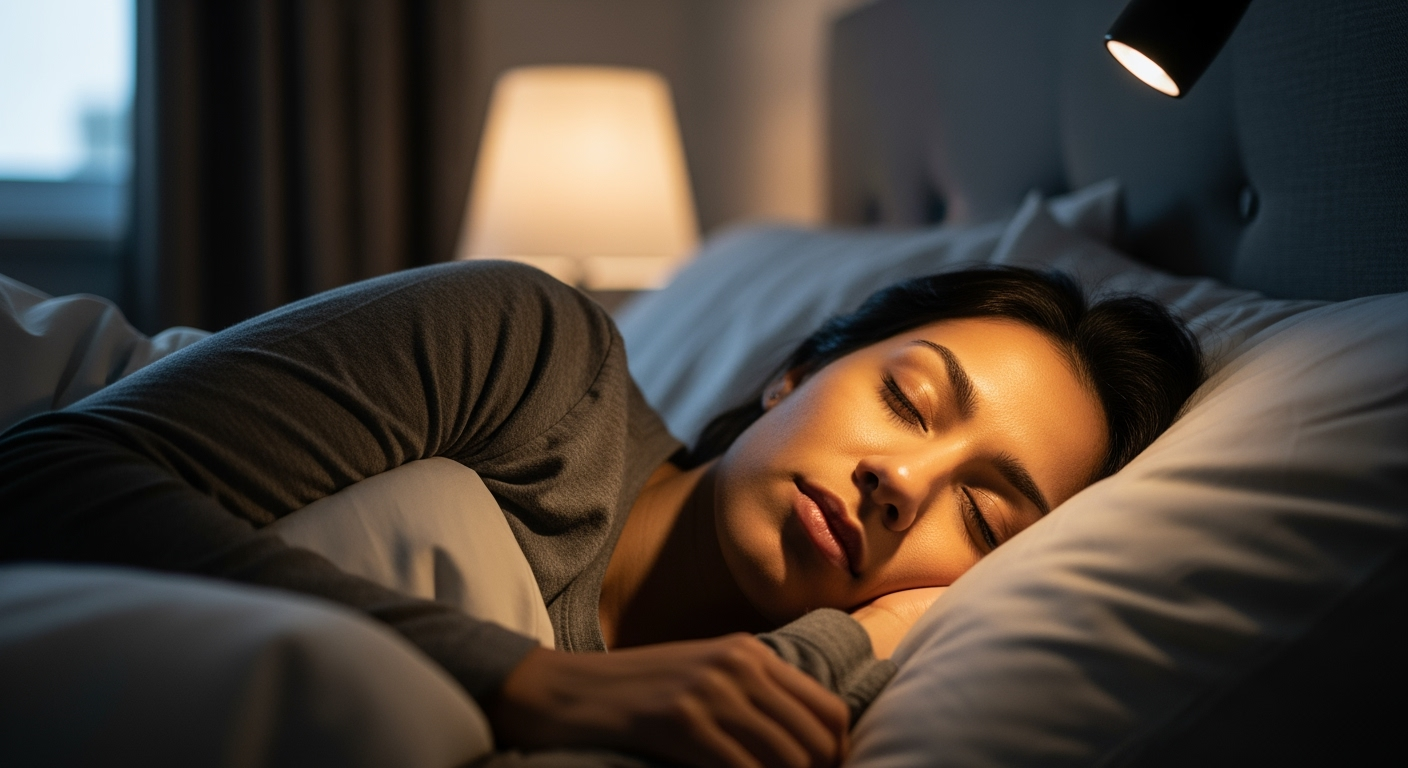Related Articles

Breakthrough Microchip Restores Reading Vision, Offering New Hope for Millions with Sight Loss

The Hidden Danger: Unraveling the Complex Link Between Talc, Asbestos, and Cancer





While the universal call for seven to nine hours of sleep per night echoes across public health recommendations, emerging research suggests this standard may overlook critical distinctions in sleep requirements between sexes. A growing body of scientific inquiry indicates that women often need more sleep than men, a difference driven by a complex interplay of physiological, hormonal, and even cognitive factors that profoundly impact their rest and overall well-being. This subtle, yet significant, disparity underscores a need for greater recognition and tailored approaches to sleep health, acknowledging that the consequences of insufficient rest can manifest more acutely and differently in women.
One of the most compelling arguments for women's increased sleep needs centers on brain activity. Studies suggest that women's brains may work harder and more flexibly throughout the day, particularly due to a propensity for multitasking and intense cognitive engagement. Researchers posit that the more the brain is utilized during waking hours, the greater its need for recovery and repair during sleep. Professor Jim Horne, a prominent sleep expert, has suggested that women typically engage more of their brain than men do, attributing this to their tendency to juggle multiple tasks simultaneously. This heightened daily brain activity consequently necessitates more restorative sleep to fully recuperate. While men with demanding, complex jobs might also require more sleep than average, the inherent differences in brain wiring and daily cognitive load often place women at a higher baseline for sleep requirements.
Furthermore, sleep laboratory studies have observed differences in sleep architecture. Women tend to spend slightly more time in non-REM (Rapid Eye Movement) sleep, a stage where brain activity slows down, and may enter REM sleep—characterized by high brain activity and vivid dreaming—earlier than men. These distinctions in sleep cycles further point to unique neurological demands influencing the quantity and quality of rest required.
Beyond daily brain usage, the hormonal landscape of women plays a pivotal and often disruptive role in their sleep patterns and needs. From puberty through menopause, women experience significant hormonal fluctuations that men do not, impacting everything from sleep quality to the propensity for sleep disorders.
The menstrual cycle regularly alters levels of estrogen and progesterone. Estrogen generally promotes better sleep by enhancing REM sleep duration, while progesterone, known for its mild sedative effects, can aid sleep. However, the dramatic drop in progesterone levels just before menstruation, during the luteal phase, often leads to sleep disturbances, including difficulty sleeping due to cramps, headaches, and bloating.
Pregnancy represents a period of profound hormonal upheaval. Elevated progesterone levels in the first trimester can induce significant drowsiness, leading many expectant mothers to feel excessively sleepy and nap more frequently. As pregnancy progresses, physical discomfort, frequent urination, and continued hormonal shifts contribute to fragmented sleep and increased incidence of conditions like restless legs syndrome and sleep apnea. The postpartum period also presents unique challenges, with hormonal shifts and the demands of newborn care often resulting in severe sleep deprivation.
Perhaps one of the most impactful stages for women's sleep is perimenopause and menopause. The decline in estrogen and progesterone during these years can lead to a host of sleep-disrupting symptoms, most notably hot flashes and night sweats, which cause frequent awakenings. This hormonal shift also increases the risk of sleep disorders such as insomnia and obstructive sleep apnea (OSA). While men generally have higher rates of OSA, post-menopausal women face a comparable risk, and the condition can carry different, often more serious, health implications for them.
The consequences of insufficient sleep are not distributed equally between the sexes. Research indicates that women often experience more severe symptoms and adverse health effects from sleep deprivation compared to men. This heightened sensitivity means that missing even an hour or two of sleep can have a more pronounced impact on a woman's physical and mental state.
One striking finding is the strong association between poor sleep and psychological distress in women. Studies have linked unhealthy sleep in women to significantly elevated levels of depression, anger, and hostility, a correlation not observed to the same degree in men. Women are also nearly twice as likely to be diagnosed with anxiety and depression, conditions strongly interwoven with insomnia, further exacerbating sleep problems. The Centers for Disease Control and Prevention (CDC) reports that 17% of women experience trouble falling asleep most nights, compared to 12% of men.
Beyond mental health, sleep deprivation poses distinct physical health risks for women. Chronic insufficient sleep, even just falling short of the recommended seven to nine hours, has been shown to increase insulin resistance in otherwise healthy women, raising their risk for type 2 diabetes. Furthermore, inadequate sleep contributes to an increased risk of heart disease and other chronic conditions. Women also tend to be more vulnerable to certain sleep disorders, being 40% more likely than men to suffer from insomnia and experiencing higher rates of restless legs syndrome. When sleep-deprived, women tend to spend more time in deep sleep during subsequent "catch-up" sleep, suggesting their bodies are working harder to recover from the deficit.
While biological factors are paramount, societal expectations and subtle differences in circadian rhythms also contribute to the unique sleep landscape for women. Women are often more likely to bear primary caregiving responsibilities, which can lead to frequent nighttime awakenings and fragmented sleep, particularly when caring for children or other family members. This consistent disruption can prevent women from achieving the deep, restorative sleep they require.
Additionally, differences in circadian rhythms, the body's internal clock, exist between sexes. Females generally tend to experience the urge to sleep earlier than males and exhibit more robust influxes of melatonin, the sleep hormone. While these differences might seem subtle, they can contribute to distinct sleep patterns. For instance, males are more often "night owls," preferring later bedtimes. This can lead to misalignment in couples' sleep schedules, where women in heterosexual relationships are more likely to have their sleep disrupted by a male partner's movements or snoring.
The accumulating evidence points to a significant truth: women's sleep needs and experiences are often distinct from men's. The interplay of heightened brain activity, complex hormonal cycles, a higher prevalence of certain sleep disorders, and the disproportionate impact of sleep deprivation underscore that while the general recommendation for sleep duration applies to all adults, women face unique challenges that frequently necessitate more restorative rest. Recognizing these differences is not merely an academic exercise; it is crucial for public health messaging, medical interventions, and individual self-care. As the understanding of sex-specific sleep patterns deepens, a more tailored and effective approach to promoting adequate and quality sleep for women can emerge, ultimately supporting their overall health and well-being.